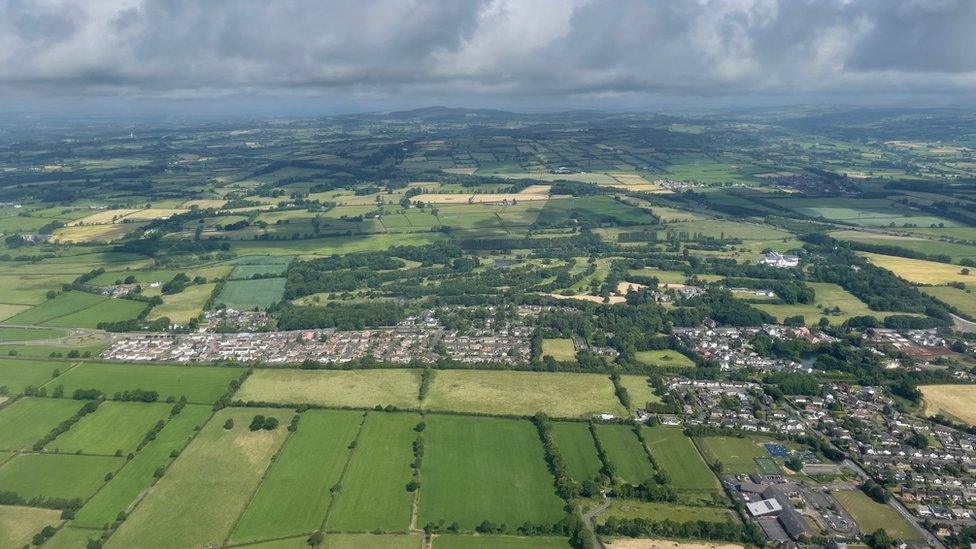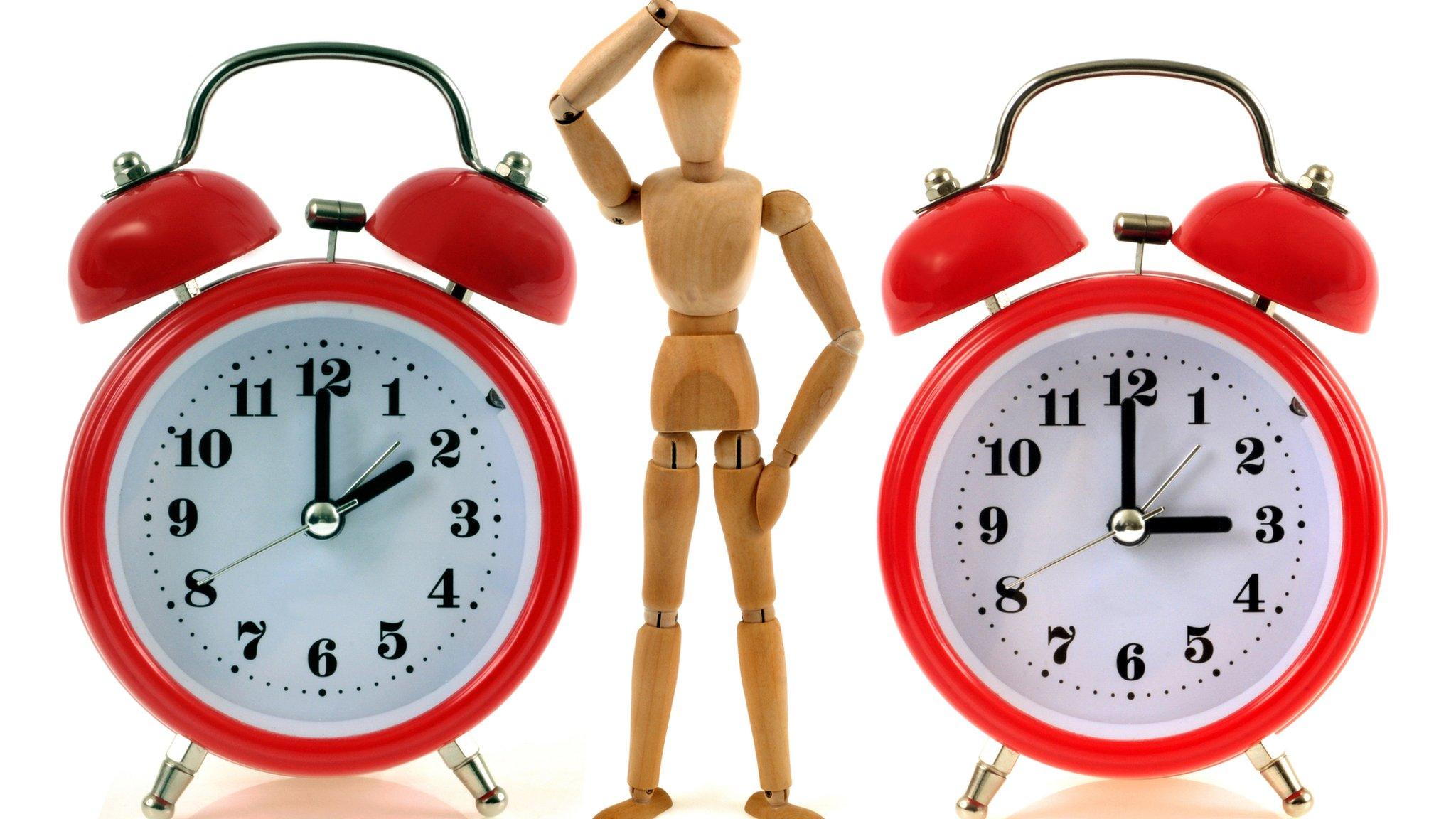Weather and clocks set to spring forward on Easter Sunday
- Published

The time change on Sunday signals longer evenings and brighter days ahead
As spring weather firmly establishes its presence in Northern Ireland, another annual event signals the transition into the new season - the clocks spring forward.
With daylight saving time just around the corner, residents are preparing to advance their clocks by one hour on Easter Sunday.
This adjustment, though minor, heralds longer evenings and brighter days, symbolising a step towards sunnier months ahead.
For many, the time change serves as a reminder to embrace the shifting seasons, offering more opportunities for outdoor activities and leisurely pursuits.
However, this seasonal transition isn't solely about resetting timepieces, it also brings a shift in weather patterns across the island.
What will Spring weather bring?
Spring in Ireland marks a time of transition, where the remnants of winter reluctantly give way to the promise of warmer days.
The renowned variability of Irish weather adds an element of unpredictability to the seasonal shift.
While sunshine and clear skies may grace the landscape one moment, they can quickly give way to brisk winds and scattered showers the next.
This dynamic interplay of weather elements is an intrinsic part of Ireland's charm, keeping its inhabitants forever prepared for the unexpected.

Many farmers across Northern Ireland will be preparing for the new season ahead
For farmers and gardeners, the arrival of spring signals the start of a new growing season.
Fields and gardens awaken from their winter slumber as farmers sow seeds and tend to their crops in anticipation of a bountiful harvest.
However, the transition is not without its challenges.
Clocks spring forward
Sleep schedules may be temporarily disrupted as internal clocks adjust to the new time, leading to groggy mornings for some.
Moreover, the change prompts discussions about the necessity of Daylight Saving Time itself.
In early 2019, the European Parliament backed a proposal to stop the twice-yearly clock change from 2021, but that has not yet come into effect.
The plan, however, was opposed by the Irish Cabinet later that year.
It feared the move could result in Northern Ireland and the Republic of Ireland being in different time zones.
This happened before between 1941 and 1947 (with the exception of 1946).
Why do the clocks go forward?

People will be losing an hour of sleep as the clocks change on Sunday
To save energy during World War Two, the UK adopted double summer time, but the Irish Free State did not follow suit, meaning it was an hour behind Northern Ireland all year round.
Advocates for clocks changing argue that the additional hour of daylight promotes energy conservation and enhances overall well-being, while critics question its relevance in the modern era.
Despite the debate, one thing remains certain: Northern Ireland prepares to embrace the fleeting beauty of springtime, one hour at a time.
Related topics
- Published26 March 2019

- Published18 July 2019

- Published30 March 2019
